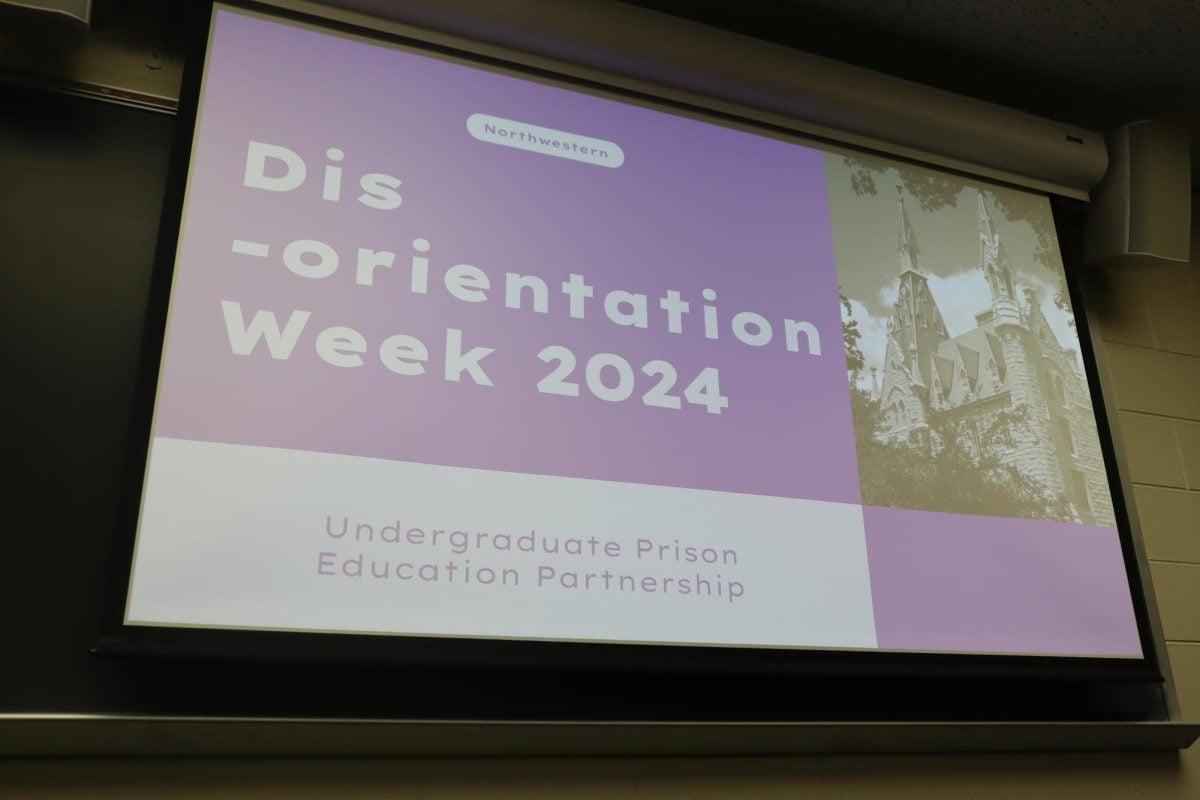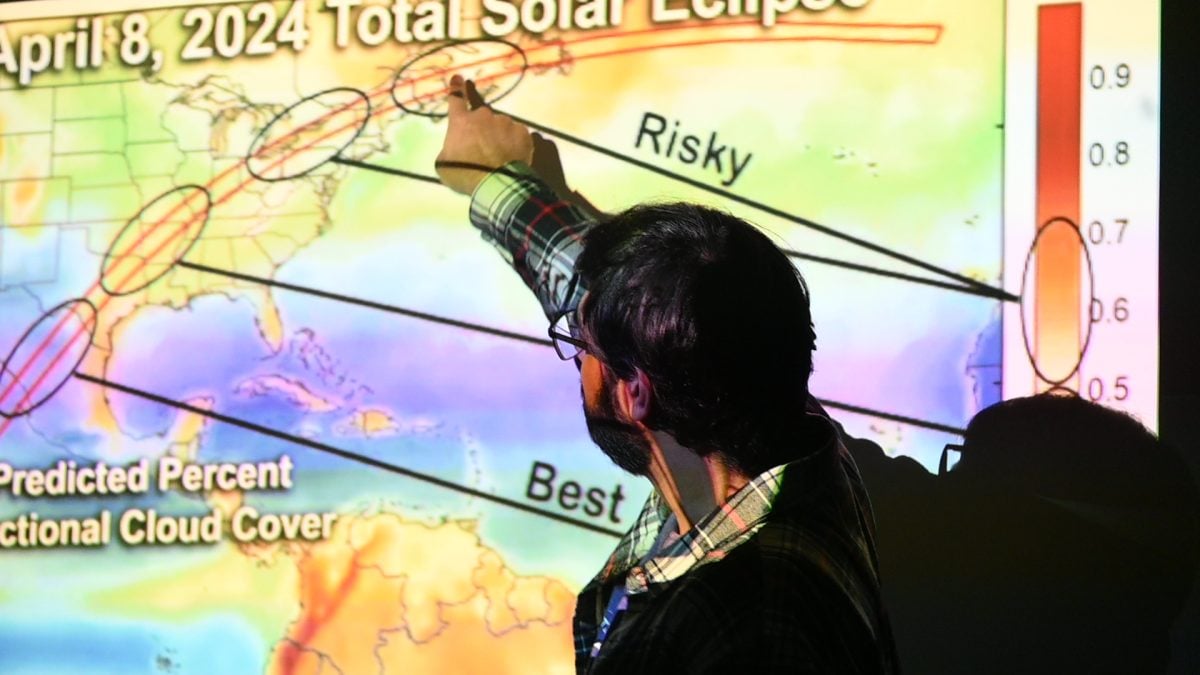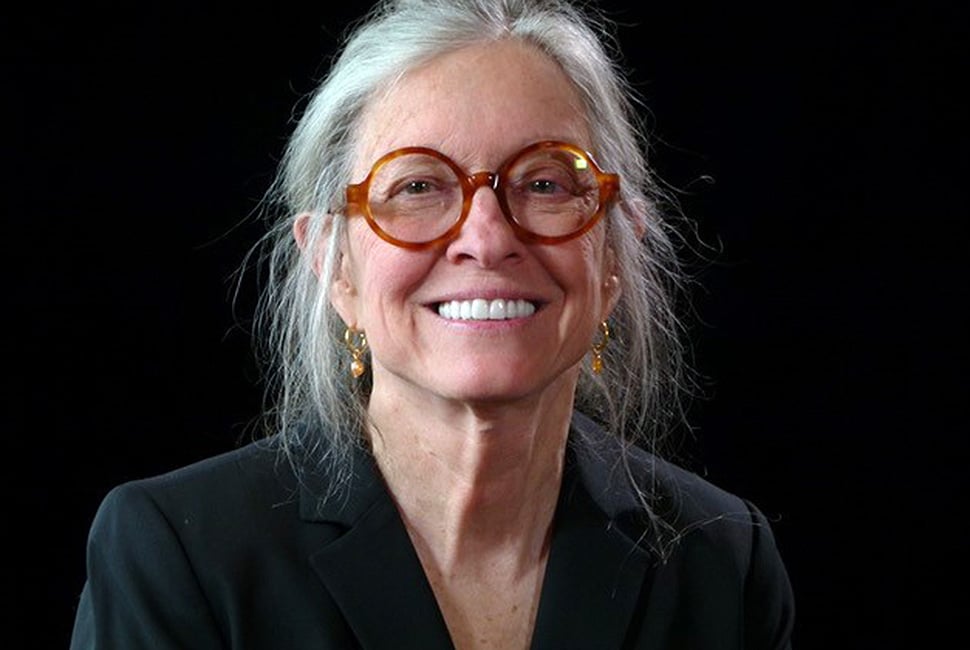Students gathered in Parkes Hall Tuesday with the Undergraduate Prison Education Program to learn about the history of discipline, justice systems and abolition activism at Northwestern.
The event was part of Disorientation Week, a series of teach-ins, discussions and bonding activities hosted by various activist groups on campus. Weinberg sophomore Grace Yu, UPEP’s internal programming co-chair, said the series aims to “disorient” students by helping them learn about existing systems at the University.
The presentation focused on the presence of carceral logic — beliefs that justify punitive systems like incarceration, surveillance and exclusion-based discipline — at Northwestern and beyond.
“Imprisonment is defined as the systematic punishment and capture of individuals designated guilty,” UPEP member and Communication sophomore Genesis Castro said during the presentation. “When someone is in prison, they’re stripped of their freedom of mobility and agency…These practices also occur in broader social contexts.”
As an example of carceral logic in NU’s history, presenters touched on the tradition of violence against Indigenous people reflected in campus landmarks. Parkes Hall sits on Sheridan Road, which was named after Gen. Philip Sheridan, who coined the phrase, “the only good Indian is a dead Indian.”
John Evans, NU founder and Evanston namesake, issued a proclamation allowing Coloradans to “kill and destroy” any hostile Indian people they encountered, leading to the 1864 Sand Creek Massacre. The massacre killed around 200 Cheyenne and Arapaho people, according to NU Native American and Indigenous Initiatives.
The presentation also highlighted several anti-carceral activist movements that have taken place at NU. Organizers touched on the push originating in 2015 to remove John Evans’ name from the NU Alumni Center. Presenters also discussed the 1968 Bursar’s Office Takeover, during which over 100 students participated in a sit-in to protest discriminatory policies against and a lack of resources for Black students.
SESP sophomore Anya Mateu-Asbury, who spoke about the 1968 Bursar’s Takeover, highlighted one of the major causes for the sit-in: a fight that broke out between members of the Sigma Chi fraternity and For Members Only, NU’s Black student alliance. Mateu-Asbury said Evanston police maced, arrested and charged two Black men, guests from off campus, while the white fraternity members did not face consequences.
“Northwestern was doing nothing to combat this inequity in discipline and policing between white and Black students,” Mateu-Asbury said.
Students also discussed the way carceral logic manifests in education. Truancy laws punish K-12 students for unexcused absences and there is a historic lack of accommodations for students with disabilities and health issues, who then face consequences for being unable to meet academic standards.
Organizers then invited attendees to share their own experiences with inequitable practices on campus.
Yu, a low-income student who deals with chronic pain that sometimes leaves her bedridden, said several deans, professors and advisors have suggested she “drop out” after she explained her situation and asked for accommodations.
Yu said her story is just one example of how students can be punished for circumstances they have no control over. She told The Daily she hopes her story can show students they’re not alone if they feel harmed or punished by institutional policies at NU.
“Carcerality is not something that we often think about as ingrained in our everyday lives, but in reality it is,” she said. “In a privileged, elite school like Northwestern, it’s built into our history and our present-day foundations.”
Email: [email protected]
X: @joyycee_li
Related Stories:
— Recent NPEP graduate Benard McKinley marches through The Arch after being freed from prison
— NU student activists launch first ‘Disorientation Week’ with opening meeting















